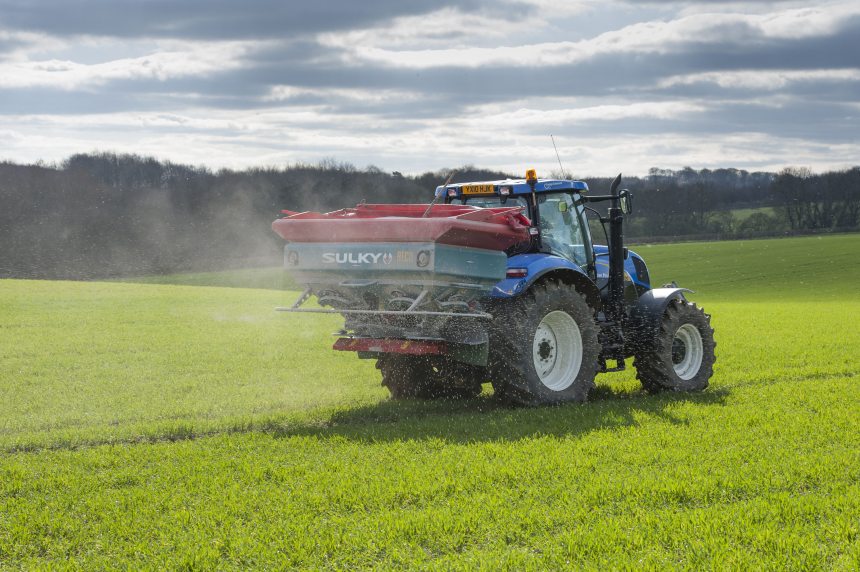
The NFU is urging farmers to respond to a consultation seeking to reduce ammonia emissions from urea fertilisers, as it 'will impact the way we farm'.
Three policy options are set out in Defra's consultation for cutting ammonia emissions by regulating the use or sale of solid urea – liquid urea would be excluded from any new rules.
Defra says the emissions are harmful to natural habitats as well as to human health, with 87% coming from agriculture, of which 18% is attributed to inorganic fertiliser application.
The government has committed to reduce the pollutant by 8% of 2005 levels by 2020, and a 16% reduction by 2030.
Three options have been presented, including a total ban on solid urea fertilisers, or a requirement to stabilise them with the addition of a urease inhibitor - a chemical that helps slow the conversion of urea to ammonium.
Defra is also looking at a requirement to restrict the spreading of solid urea fertilisers so they can only be used from 15 January to 31 March.
The NFU has urged farmers to respond to the 'important' consultation, which closes for responses on 26 January 2021.
The union's combinable crops board chair, Matt Culley said urea was the most commonly used form of nitrogen fertiliser in the world, and an important tool for farmers in producing food.
He said it offered several advantages when used alongside ammonium nitrate, as well as helping to maintain a competitive fertiliser market in the UK.
"British farming is committed to playing its part in tackling climate change and has a goal to reach net zero by 2040," Mr Culley added.
"The NFU is asking government to support that ambition without resorting to removing a valued product like urea from the market.”
Defra Secretary George Eustice explained that any changes would need to be made in a way that was 'realistic and achievable' for farmers.
“Ammonia emissions are causing harm to sensitive and important habitats by making soils more acidic which damages the growth of some plant species, impacting on biodiversity.
"They are also harmful to human health, and we welcome views on how we can address their use in agriculture so that we can all breathe cleaner air.
“We are committed to working with farmers to help them do this," Mr Eustice said.
The fertiliser consultation opened on 3 November 2020, with a deadline for responses set for 26 January 2021.
